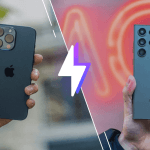The rapid evolution of graphic technology has led gamers, content creators, and high-end PC users to look for increasingly powerful solutions. Among the most sought-after configurations today are 4K 120Hz GPUs, offering smooth, immersive, and ultra-realistic experiences.
In this post, we address the most frequent queries regarding 4K 120Hz GPUs, providing all the necessary information to help you choose the right hardware in 2025.
Table of Contents
What is a 4K 120Hz GPU?
Why Choose a 4K 120Hz GPU in 2025?
What Are the Best GPUs for 4K 120Hz Displays?
What Processor is Needed for a 4K 120Hz GPU?
Do All Games Benefit from a 4K 120Hz GPU?
What is the Difference Between 4K 60Hz and 4K 120Hz?
Are 4K 120Hz GPUs Useful for Video Editing?
Are 4K 120Hz GPUs Suitable for Virtual Reality (VR)?
How to Optimize Performance with a 4K 120Hz GPU?
Conclusion
1. What is a 4K 120Hz GPU?
A 4K 120Hz GPU refers to a graphics card capable of supporting a 4K resolution (3840 x 2160 pixels) with a 120Hz refresh rate. This means that the connected display can show 120 frames per second at 4K resolution, ensuring smooth visuals and incredibly detailed experiences.
Modern GPUs equipped with these capabilities are designed specifically for high-definition gaming, 4K videos, and content creation applications that demand exceptional graphical performance.
2. Why Choose a 4K 120Hz GPU in 2025?
With gaming, virtual reality, and high-definition video editing on the rise, a 4K 120Hz GPU becomes essential for providing top-quality visuals and smooth performance. By 2025, more and more content is available in 4K, justifying the need for a GPU capable of handling this resolution at high refresh rates.
A 120Hz refresh rate ensures a smoother and more responsive experience, reducing motion blur and lag. This technology is particularly beneficial for competitive online gaming, where every millisecond matters, or for content creators who require fast, precise rendering.
3. What Are the Best GPUs for 4K 120Hz Displays?
As of 2025, several high-end GPUs support 4K 120Hz displays. Here are some of the best models available on the market:
NVIDIA GeForce RTX 4090: The RTX 4090 from NVIDIA is one of the most powerful GPUs for 4K gaming. It offers exceptional performance at 120Hz, perfect for ray tracing, VR applications, and AAA games.
AMD Radeon RX 7900 XTX: The RX 7900 XTX from AMD is also a popular choice for 4K setups. It provides excellent value while delivering smooth 120Hz gaming performance, particularly in AAA titles.
NVIDIA GeForce RTX 4080: For those seeking a slightly less expensive GPU, the RTX 4080 also offers great performance at 4K 120Hz, with DLSS 3.0 features that improve frame rates without sacrificing visual quality.
4. What Processor is Needed for a 4K 120Hz GPU?
A powerful processor is crucial to maximize the performance of a 4K 120Hz GPU. If the processor is too slow, it will bottleneck the GPU’s ability to display frames quickly.
Intel Core i9-13900K: This next-generation processor offers exceptional performance for gaming and creative applications, making it a great match for high-end 4K GPUs.
AMD Ryzen 9 7950X: The Ryzen 9 7950X from AMD is also an excellent choice for demanding users. With 16 cores and 32 threads, it excels at multitasking and resource-intensive applications, such as 4K video editing.
5. Do All Games Benefit from a 4K 120Hz GPU?
While most modern games benefit from 4K 120Hz GPUs, not all games are optimized to fully leverage these technologies. Some older or less demanding games might not require such high power.
However, newer games with high-fidelity graphics and competitive multiplayer games will see significant improvements in fluidity at 120Hz, with reduced motion blur and more precise controls.
6. What is the Difference Between 4K 60Hz and 4K 120Hz?
The main difference lies in the refresh rate. A 4K 60Hz screen displays 60 frames per second, whereas a 4K 120Hz screen displays 120 frames per second. This results in a much smoother experience, especially noticeable during fast-paced action in games or videos with rapid movement.
120Hz screens also reduce motion blur, providing crisper and more detailed visuals.
7. Are 4K 120Hz GPUs Useful for Video Editing?
Yes, a 4K 120Hz GPU is extremely beneficial for video editing professionals. Such GPUs not only allow you to view 4K videos in real-time, but they also accelerate rendering processes.
Video editing software, like Adobe Premiere Pro and DaVinci Resolve, can take advantage of the power of modern GPUs to offer faster processing, especially when editing 4K content.
8. Are 4K 120Hz GPUs Suitable for Virtual Reality (VR)?
Yes, 4K 120Hz GPUs are suitable for virtual reality (VR). A high refresh rate is essential for a smooth VR experience, reducing motion blur and latency, which is crucial to avoid motion sickness.
High-quality VR headsets like the Oculus Quest Pro or Valve Index benefit greatly from a GPU capable of handling 4K at 120Hz, offering more immersive and responsive virtual worlds.
9. How to Optimize Performance with a 4K 120Hz GPU?
To maximize the performance of a 4K 120Hz GPU, here are a few tips:
Update Drivers: Ensure that your GPU drivers are up-to-date to benefit from the latest optimizations.
Overclocking: If you’re looking for extra performance, you can try overclocking your GPU, while keeping an eye on temperatures and stability.
Graphics Settings: Adjust graphical settings in games to maintain a balance between visual quality and frame rate.
10. Conclusion
4K 120Hz GPUs have become essential for those who want to enjoy smooth, high-quality visuals and superior performance in 2025. Whether for gaming, video editing, or virtual reality, these graphics cards offer incredible performance and allow you to make the most of modern 4K displays.
If you’re a gamer or content creator with demanding needs, investing in a 4K 120Hz GPU is an excellent way to enhance your experience. However, ensure that you have a powerful processor and compatible system to avoid bottlenecks.
See More



